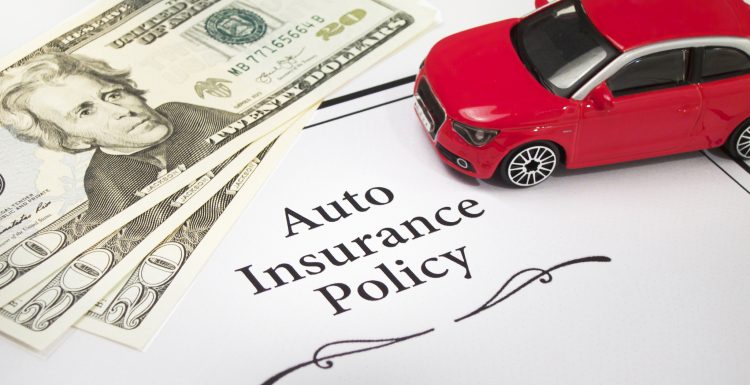Innovations in Car Insurance: Pay-Per-Mile and Beyond
Car insurance has long been a staple in the life of vehicle owners. It provides a safety net, peace of mind, and financial protection in the event of an accident. However, the insurance industry is not immune to change, and innovations are constantly reshaping the way we think about car insurance. In this article, we’ll explore the latest advancements in the field, focusing on the emergence of pay-per-mile insurance and the broader concept of telematics-based coverage.
Traditional Car Insurance
Traditional car insurance follows a familiar model where policyholders pay a fixed premium, typically on a monthly or yearly basis. This fixed premium covers a range of risks, from accidents to theft, and insurers calculate the cost based on various factors, including the driver’s history, the vehicle’s make and model, and the area of operation.
The Rise of Pay-Per-Mile Insurance
-
How Pay-Per-Mile Works
Pay-per-mile insurance, as the name suggests, charges policyholders based on the number of miles driven. This concept has gained traction, especially among people who drive less frequently or choose alternative transportation options. It offers a flexible and cost-effective solution for occasional drivers.
-
Benefits of Pay-Per-Mile Insurance
Cost Savings: Pay-per-mile insurance can significantly reduce costs for individuals who drive infrequently. It’s an ideal option for those who rely on public transport or work from home.
Environmental Impact: With a focus on reducing the number of miles driven, pay-per-mile insurance encourages eco-friendly transportation choices, which is good for the environment.
-
Drawbacks of Pay-Per-Mile Insurance
Limited Options: This insurance may not be suitable for high-mileage drivers, and some may find it challenging to fit their driving habits into this model.
Beyond Pay-Per-Mile: Telematics and Usage-Based Insurance
The next evolution in car insurance takes us beyond the simplicity of pay-per-mile policies. Telematics, a technology that collects real-time data about a driver’s habits and behavior, has opened up a world of possibilities for more personalized and dynamic insurance coverage.
-
How Telematics Insurance Works
Telematics insurance relies on devices installed in the vehicle or mobile apps that monitor driving habits, including speed, braking, and mileage. This data is then used to determine insurance rates.
-
Pros and Cons of Telematics Insurance
Tailored Rates: Drivers can enjoy lower premiums by demonstrating safe driving habits, which promotes responsible behavior on the road.
Privacy Concerns: Some individuals have reservations about sharing such detailed information with insurers, raising privacy issues.
On-Demand Insurance: A Game Changer
On-demand car insurance is another innovation that is changing the game. This type of insurance allows drivers to purchase coverage only when they need it. Whether it’s for a few hours, a day, or a week, on-demand insurance is highly flexible.
The Future of Car Insurance
The future of car insurance is exciting and full of possibilities. The ongoing development of artificial intelligence, IoT, and big data analytics will lead to even more accurate and personalized coverage options. As technology continues to advance, the insurance industry will adapt to offer policies that align with the shifting needs of consumers.
Impact on Driving Behavior
Innovations in car insurance have not only transformed the industry but have also had a significant impact on driving behavior. The knowledge that driving habits are being monitored can encourage safer practices on the road, ultimately reducing accidents and claims.
Challenges and Concerns
-
Privacy
The collection of detailed data for telematics insurance has sparked concerns about privacy. Many people are uneasy about having their every move on the road tracked.
-
Technological Reliability
These innovations rely heavily on technology, and any glitches or malfunctions can lead to inaccuracies in policy pricing, which may be a concern for policyholders.
Regulatory Framework

As these innovative insurance models continue to evolve, it’s crucial for governments and regulatory bodies to establish clear guidelines and protections for consumers. The regulatory framework must strike a balance between encouraging innovation and safeguarding consumer interests.
Conclusion
Innovations in car insurance, from pay-per-mile to telematics and on-demand coverage, are reshaping the industry. They provide more personalized options, promote safer driving behavior, and offer flexibility to suit the needs of modern consumers. While challenges like privacy and technological reliability persist, the future of car insurance looks promising.
FAQs :
- Is pay-per-mile insurance more affordable for everyone?
Pay-per-mile insurance is generally more affordable for individuals who drive fewer miles. However, its cost-effectiveness depends on individual driving habits.
- How does telematics insurance affect my privacy?
Telematics insurance can raise privacy concerns as it collects detailed data about your driving habits. Many insurers have policies to protect this data, but it’s essential to review them.
- Can I switch between different insurance models?
Yes, you can switch between traditional, pay-per-mile, telematics, and on-demand insurance depending on your needs and preferences.
- Are these innovative insurance options available worldwide?
These innovations are becoming more widespread, but their availability may vary by region and insurance provider.
- What should I look for in a telematics insurance policy?
When considering telematics insurance, review the data collection methods, how it affects your rates, and the insurer’s policies on data protection and privacy.
- Optimal Gold Trading Broker for Your Portfolio – December 17, 2023
- Top Gold Trading Brokers of the Year – December 17, 2023
- Strategies for Online Gold Trading Success – December 16, 2023







